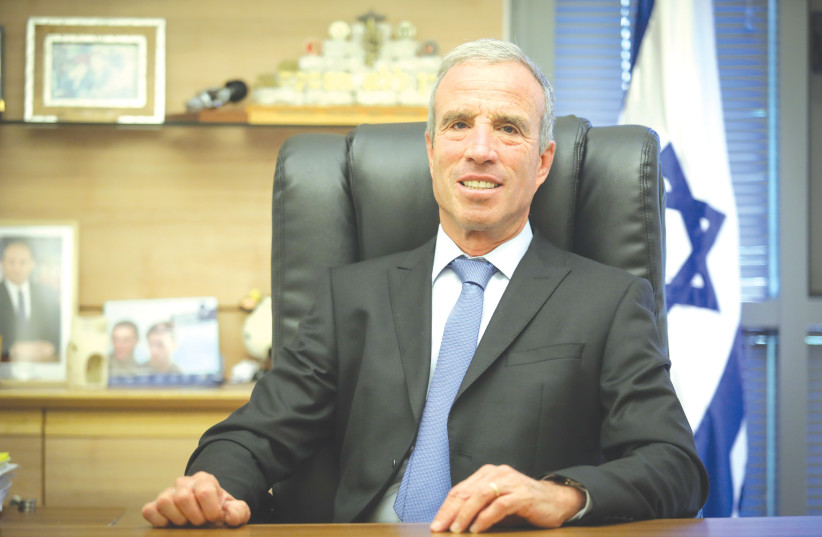The storm caused by Intelligence Minister Elazar Stern’s statements in an interview on Sunday that he had shredded anonymous complaints submitted against officers when he headed the IDF Manpower Directorate reinforces what a sensitive subject the issue is.
The specific focus of attention centered on whether some of the complaints that were shredded concerned claims of sexual harassment from women soldiers. In Sunday’s radio interview, Stern disclosed that he had “shredded anonymous complaints” during his time as head of the Manpower Directorate. He was responding to a question about an anonymous complaint lodged recently against the incoming head of the Shin Bet (Israel Security Agency).
Later, in interviews aimed at damage control, Stern said he was just trying to speak out against a “culture of anonymous complaints” and that he had never shredded anonymous complaints about sexual assault.
He asserted that as an officer in the IDF, he “encouraged every soldier, male or female, who was harassed, sexually or otherwise, to complain, and at the same time took unequivocal action against anyone found guilty. All complaints… were investigated in depth.”
Foreign Minister Yair Lapid, chairman of Stern’s party, Yesh Atid, spoke with the intelligence minister and released a statement that accepted his denial that he had shredded complaints about sexual harassment. Yesh Atid, Lapid added, has zero tolerance for sexual harassment, and if Stern had admitted to shredding documents alleging harassment, the party would have departed from him immediately.
The Stern affair has brought out into the open the nature of complaints of sexual harassment, whether made anonymously or with full ownership. The resounding conclusion is that it shouldn’t matter how they are made; such complaints must be investigated.

As Eve Young wrote in Monday’s Jerusalem Post, the prerequisite that sexual harassment complaints be filed with the complainant’s name highlights the lack of understanding of the realities faced by the victims.
In many cases, women don’t feel they can complain openly about sex offenses, especially if they’re serving in strict, hierarchal organizations like the IDF or the police. Investigations can be quashed and ambitions of advancement stopped dead in their tracks.
Look no further than the case of Colette Avital, the former Labor MK, who in an interview last week in Haaretz alleged that the late president Shimon Peres had sexually assaulted her twice in the 1980s, including one time when he was prime minister. When asked why she did not tell anyone until now, Avital said: “Because they would have laughed at me… those were the norms.”
Former Labor leader Shelly Yachimovich, now a radio presenter on KAN, commented that if Avital had come forward at the time, she would have been met with a campaign of denial and accusations of lying. Any chance of her continuing her career in politics, which eventually included a stint as Israeli consul-general in New York, would have been stymied.
Now, the issue is whether Stern’s comments will stymie his ambitions to become the chairman of the Jewish Agency. He possesses a sterling resume of service to the country and the Jewish people.
Stern founded the IDF’s conversion program intended for immigrants from the former Soviet Union. He established the Edim b’Madim (Witnesses in Uniform) project, which sends IDF soldiers to Poland to witness the concentration camps firsthand. He also headed a special committee that reformulated the IDF Code of Ethics and led to the writing of the “Yi’ud V’yihud” statement of principles to strengthen Jewish and Zionist values in the IDF.
Questions should be asked and the issue should be raised when Stern is interviewed for the Jewish Agency position on Wednesday. One member of the 10-person selection committee, Helena Glaser, told the Post’s Gil Hoffman it would certainly be on the agenda.
Nevertheless, what seems to be a slip of the tongue in a radio interview should not disqualify Stern from advancing in the process to lead the Jewish Agency. Ultimately, it will be up to the selection committee. We wish it the wisdom it will need to pick the best candidate.
